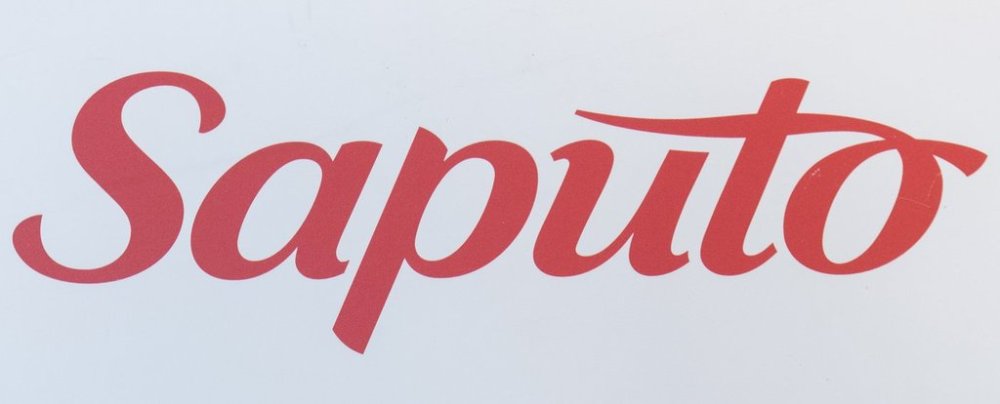Saputo CEO doesn’t see supply management at risk in trade talks
Advertisement
Read this article for free:
or
Already have an account? Log in here »
To continue reading, please subscribe:
Monthly Digital Subscription
$0 for the first 4 weeks*
- Enjoy unlimited reading on winnipegfreepress.com
- Read the E-Edition, our digital replica newspaper
- Access News Break, our award-winning app
- Play interactive puzzles
*No charge for 4 weeks then price increases to the regular rate of $19.95 plus GST every four weeks. Offer available to new and qualified returning subscribers only. Cancel any time.
Monthly Digital Subscription
$4.99/week*
- Enjoy unlimited reading on winnipegfreepress.com
- Read the E-Edition, our digital replica newspaper
- Access News Break, our award-winning app
- Play interactive puzzles
*Billed as $19.95 plus GST every four weeks. Cancel any time.
To continue reading, please subscribe:
Add Free Press access to your Brandon Sun subscription for only an additional
$1 for the first 4 weeks*
*Your next subscription payment will increase by $1.00 and you will be charged $16.99 plus GST for four weeks. After four weeks, your payment will increase to $23.99 plus GST every four weeks.
Read unlimited articles for free today:
or
Already have an account? Log in here »
Hey there, time traveller!
This article was published 07/02/2025 (335 days ago), so information in it may no longer be current.
Saputo president and CEO Carl Colizza says he doesn’t think Canada’s dairy supply management system will be up for negotiation despite the tense trade talks with the U.S.
“I think we’ve heard now two ministers come out publicly and state that supply management is not a negotiating component and is not on the table at this point,” said Colizza on a conference call discussing Saputo’s third-quarter fiscal 2025 results.
“We believe the Canadian government understands the importance of supply management in the Canadian landscape, and we don’t think it’s going to be a negotiating element here as we move forward.”

Canada’s supply managed dairy sector is a sore spot for U.S. President Donald Trump, who says the American industry should have more access to the Canadian market.
Some experts have said the issue is likely to come up in trade negotiations between the two countries. The Canada-United States-Mexico Agreement, which was signed in 2018 under the last Trump administration, is up for review next year.
That deal saw Canada agree to let U.S. dairy farmers have access to about 3.5 per cent of the domestic market, but the U.S. has accused Canada of breaking that pact.
However, Canadian politicians have said they will defend dairy producers and protect the decades-old system that regulates production, farm-level prices and trade.
Supply management — which covers not only dairy but also poultry and eggs — isn’t only contentious in international relations.
Its homegrown critics argue it leads to higher prices for Canadians while stifling innovation and export opportunities. Proponents, including industry leaders, say it protects the sector from volatility and keeps retail prices stable.
Though Colizza doesn’t think Canada will give up supply management in trade talks with the U.S., he didn’t appear overly concerned with how Saputo would adapt if the system were to be dismantled.
“At the end of the day, it works for Canadians, and it works for Canada, and we work well within that system,” he said.
“Should the decision be made to move away from that, we’ll also adapt our platform accordingly.”
Trade is generally top of mind for businesses and investors right now, so Colizza was predictably asked what possible tariffs from the U.S. could mean for Saputo. Canada and the U.S. are in a month-long pause from tariffs and retaliation, but uncertainty over what comes after remains.
Colizza assured investors that Saputo’s American business is “very autonomous,” with few links between the two arms on a daily basis.
“So when I take a look at the potential tariff applications that are still lingering, from a direct perspective, there’s not a lot of impact, and that is because of the limited amount of movement we have between Canada and the U.S. and vice versa,” he said.
He added that some business inputs, like packaging materials or chemicals, could be affected but not in a way that drastically affects the overall company.
Saputo reported a loss of $518 million during the quarter ended Dec. 31, compared with a loss of $124 million a year earlier.
On an adjusted basis, earnings rose slightly to $167 million from $163 million.
Revenues were $5.0 billion, up 17 per cent from $4.3 billion a year earlier. It reported its diluted loss per share was $1.22, compared with a loss of 29 cents, while adjusted earnings per share were 39 cents, up from 38 cents.
— With files from Maura Forrest
This report by The Canadian Press was first published Feb. 7, 2025.
Companies in this story: (TSX:SAP)

